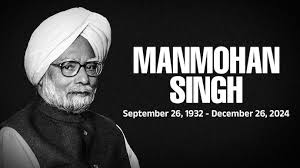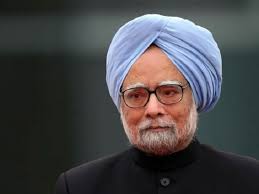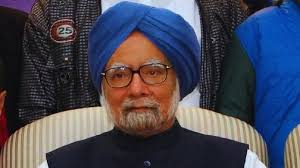Dr. Manmohan Singh: India's Economic Reformer Leader
MINDFUL LIVING


Dr. Manmohan Singh, India's former Prime Minister and one of the key architects of the country’s economic reforms, passed away at the age of 92. His contributions to India’s progress, both as a leader and economist, have left an indelible mark on the nation.
Early Life and Education
Born on September 26, 1932, in Gah, a small village in present-day Pakistan, Dr. Singh experienced the turbulence of India’s partition firsthand. Despite these hardships, his dedication to education remained strong. He pursued his higher studies at Panjab University, followed by advanced degrees in economics from the University of Cambridge and Oxford University. This strong academic foundation shaped his vision for India’s future.
Dr. Singh's academic achievements placed him among the brightest minds of his generation. His passion for economic development and nation-building was evident from an early age, setting the stage for his remarkable contributions to India's progress.
More Article For You


A Brilliant Economist and Bureaucrat
Dr. Singh's career spanned several key roles in India’s economic landscape. He served as Chief Economic Advisor, Governor of the Reserve Bank of India, and head of the Planning Commission. However, his most notable contribution came in 1991 when India faced a severe economic crisis. As Finance Minister, he introduced groundbreaking reforms that opened India’s economy to global markets, laying the groundwork for sustained economic growth.
The liberalization policies initiated under his leadership helped transform India into one of the fastest-growing economies in the world. His approach not only stabilized the country but also attracted foreign investment and fostered innovation across various industries.
More Article For You


Leadership as Prime Minister
In 2004, Dr. Manmohan Singh became India’s 13th Prime Minister, leading the country under the Congress-led United Progressive Alliance (UPA) government. As the first Sikh Prime Minister, he broke barriers and championed inclusive growth. His government introduced key programs like the National Rural Health Mission and the Mahatma Gandhi National Rural Employment Guarantee Act (MGNREGA), which aimed to reduce poverty and boost rural employment.
Dr. Singh also played a crucial role in strengthening India's foreign relations, fostering partnerships with global powers, and promoting peace and stability in South Asia. His tenure was marked by efforts to modernize infrastructure and expand access to education and healthcare.
More Article For You
Legacy and Impact
Dr. Singh's tenure focused on economic growth, social welfare, and strengthening India’s global standing. His leadership was characterized by humility, integrity, and a quiet but firm commitment to national progress. Despite facing political challenges, his legacy as an economic reformer and dedicated public servant remains unparalleled.
His economic policies continue to influence India's development path, and the programs launched under his leadership have had lasting benefits for millions. Dr. Singh's vision for a prosperous and inclusive India will be remembered as a cornerstone of the nation's growth story.
As India mourns his passing, Dr. Manmohan Singh's contributions will continue to inspire generations to come. His vision and leadership have paved the way for a stronger, more resilient India.
